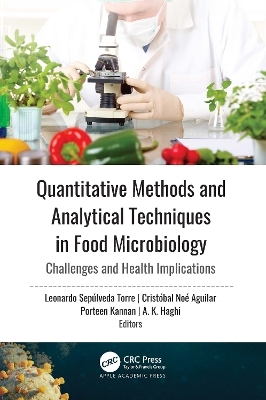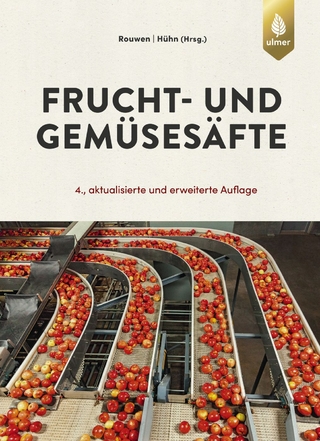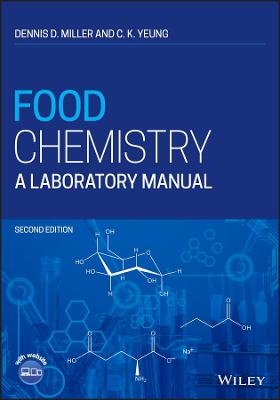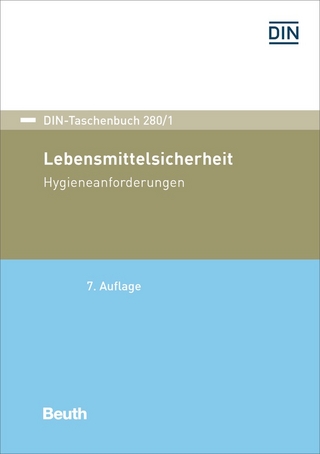
Quantitative Methods and Analytical Techniques in Food Microbiology
Apple Academic Press Inc. (Verlag)
978-1-77463-726-5 (ISBN)
This volume provides up-to-date and detailed scientific information on recent developments and new approaches in food microbiology, focusing on microbial food pathogens. The volume presents the fundamental aspects of food and microorganisms, and also addresses food systems and measures to prevent and control food, foodborne diseases, etc.
According to the editors, every minute, there are about 50,000 cases of gastrointestinal diseases from food-mediated infections and food poisoning, and many individuals, especially children, die from these infections. The most important preventive measures are for the development and continuous implementation of effective interventions to improve overall food safety. The book helps to meet the challenge of food safety issues by focusing on the fundamental aspects of food and microorganisms. Each section consists of detailed information on the particular aspects of each topic, including basic microbiology, safety, pathogenic microorganisms, food conservation, sanitization, and hygiene procedures. The microbial diversity found in food is described from the classification by kingdoms and the main groups of microorganisms present in them. Although the main issue is microbial food pathogens, the book also covers another important aspect of food microbiology: food systems and measurements to prevent and control food, foodborne diseases, etc.
Quantitative Methods Quantitative Methods and Analytical Techniques in Food Microbiology: Challenges and Health Implications will be a valuable resource for scientists, researchers, faculty, students, and others in various sectors in food science and technology. The scope of food microbiology is highly inclusive, as it interacts with all subdisciplines of microbiology, such as public health microbiology, microbial genetics, fermentation technologies, microbial physiology and biochemistry, and food microbiologists have been at the forefront of many microbiological concepts and advances.
Leonardo Sepúlveda Torre, PhD, is a researcher at the School of Chemistry at the Universidad Autónoma de Coahuila, Saltillo, Coahuila, México, where he is also a member of the Bioprocesses and Microbial Biochemistry Group. His postgraduate studies were in related topics on Food Biotechnology in the Food Research Department of the UAdeC. In 2011 he made a research stay at the Institute of Biotechnology and Bioengineering at the University of Minho (Uminho), Braga, Portugal. He worked as a collaborator at the Center of Biological Engineering in Uminho, Braga, Portugal, with the link project "Biotechnologies for Regional Food Biodiversity in Latin America." He carried out his postdoctoral program at the same institution, writing on "Assisted Extraction by Fermentation of Polyphenols from Agroindustrial Waste." Cristóbal Noé Aguilar, PhD, is Director of Research and Postgraduate Programs at the Universidad Autonoma de Coahuila, Mexico. He is also a member of the Bioprocesses and Bioproducts Research Group and Professor in the Food Research Department in the School of Chemistry at the Universidad Autónoma de Coahuila, Saltillo, Mexico. Dr. Aguilar is Associate Editor of Heliyon (Microbiology) and Frontiers in Sustainable Food Systems (Food Processing) and has published more than 330 papers in indexed journals, more than 40 articles in Mexican journals, and 250 contributions in scientific meetings. He has also published many book chapters, several Mexican books, four editions of international books, and more. He has been awarded several prizes and awards, the most important of which are the National Prize of Research 2010 from the Mexican Academy of Sciences; the Prize "Carlos Casas Campillo 2008" from the Mexican Society of Biotechnology and Bioengineering; National Prize AgroBio–2005; and the Mexican Prize in Food Science and Technology. Dr. Aguilar is a member of the Mexican Academy of Science, the International Bioprocessing Association, Mexican Academy of Sciences, Mexican Society for Biotechnology and Bioengineering, and the Mexican Association for Food Science and Biotechnology. He has developed more than 21 research projects, including six international exchange projects. Porteen Kannan, PhD, is Assistant Professor in the Department of Veterinary Public Health at Madras Veterinary College, Tamil Nadu Veterinary and Animal Sciences University, India. The research activities of Dr. Kannan include food safety and anti-microbial resistance. He performed his postdoctoral studies at the US Department of Agriculture, Maryland, USA, with a specialization in foodborne pathogens. He has published his work in both national and international journals. He is actively involved in mentoring both MVSc and PhD students. A. K. Haghi, PhD, is the author and editor of over 200 books, as well as over 1000 published papers in various journals and conference proceedings. Dr. Haghi has received several grants, consulted for a number of major corporations, and is a frequent speaker to national and international audiences. Since 1983, he has served as a professor at several universities. He is the former Editor-in-Chief of the International Journal of Chemoinformatics and Chemical Engineering and Polymers Research Journal and is on the editorial boards of many international journals. He is also a member of the Canadian Research and Development Center of Sciences and Cultures. He holds a BSc in urban and environmental engineering from the University of North Carolina (USA), an MSc in mechanical engineering from North Carolina A&T State University (USA), a DEA in applied mechanics, acoustics and materials from the Université de Technologie de Compiègne (France), and a PhD in engineering sciences from Université de Franche-Comté (France).
1. Classification of Microorganisms and Food Microbiology Generalities 2. Risk and Safety in Microbiology 3. Food-Microorganism Interaction 4. Food Preservation 5. Food and Diseases: What to Know in the Fight to Ensure Food Safety 6. Microbial Products of Importance in the Food Industry 7. Hygiene, Control, and Inspection in Foods 8. Molecular Methods for Microorganism Detection 9. New Molecular Methods for the Detection of Microorganisms 10. Fungal Production and Function of Phytase 11. Advances in the Biotechnological Process for Obtaining Ellagic Acid from Rambutan 12. Novel Methods of Food Preservation 13. Strategies During Citrus Waste Utilization: Fermentative Route for Single-Cell Protein Production 14. Impact of Functional Ingredients from Plant Food Byproducts on Human Gut Microbiota 15. Trends, Analytical Approaches, and Applications of the VITEK System for Identification and Classification of Bacteria and Yeasts
| Erscheinungsdatum | 07.06.2022 |
|---|---|
| Zusatzinfo | 31 Tables, black and white; 3 Line drawings, color; 12 Line drawings, black and white; 3 Halftones, color; 1 Halftones, black and white; 6 Illustrations, color; 13 Illustrations, black and white |
| Verlagsort | Oakville |
| Sprache | englisch |
| Maße | 152 x 229 mm |
| Gewicht | 607 g |
| Themenwelt | Technik ► Lebensmitteltechnologie |
| ISBN-10 | 1-77463-726-X / 177463726X |
| ISBN-13 | 978-1-77463-726-5 / 9781774637265 |
| Zustand | Neuware |
| Haben Sie eine Frage zum Produkt? |
aus dem Bereich


